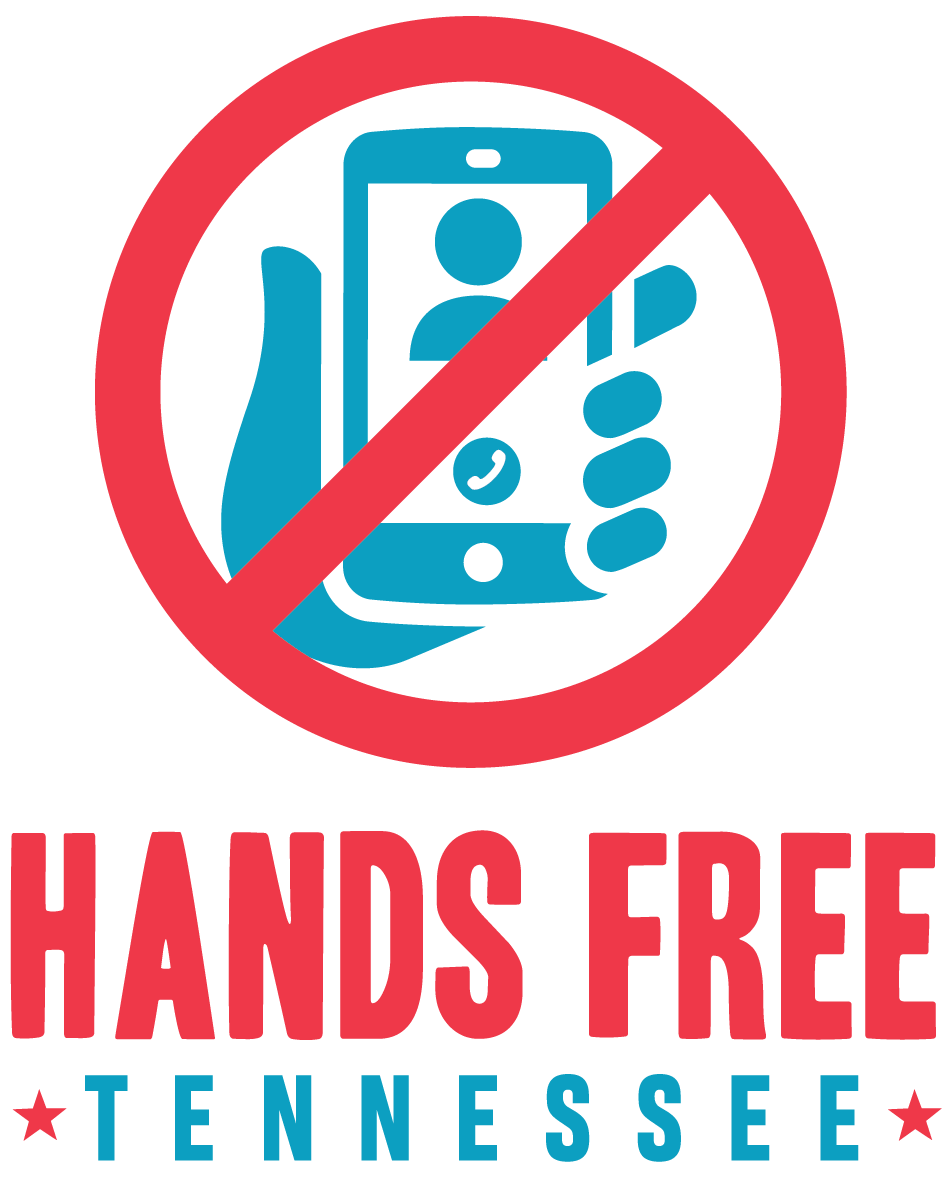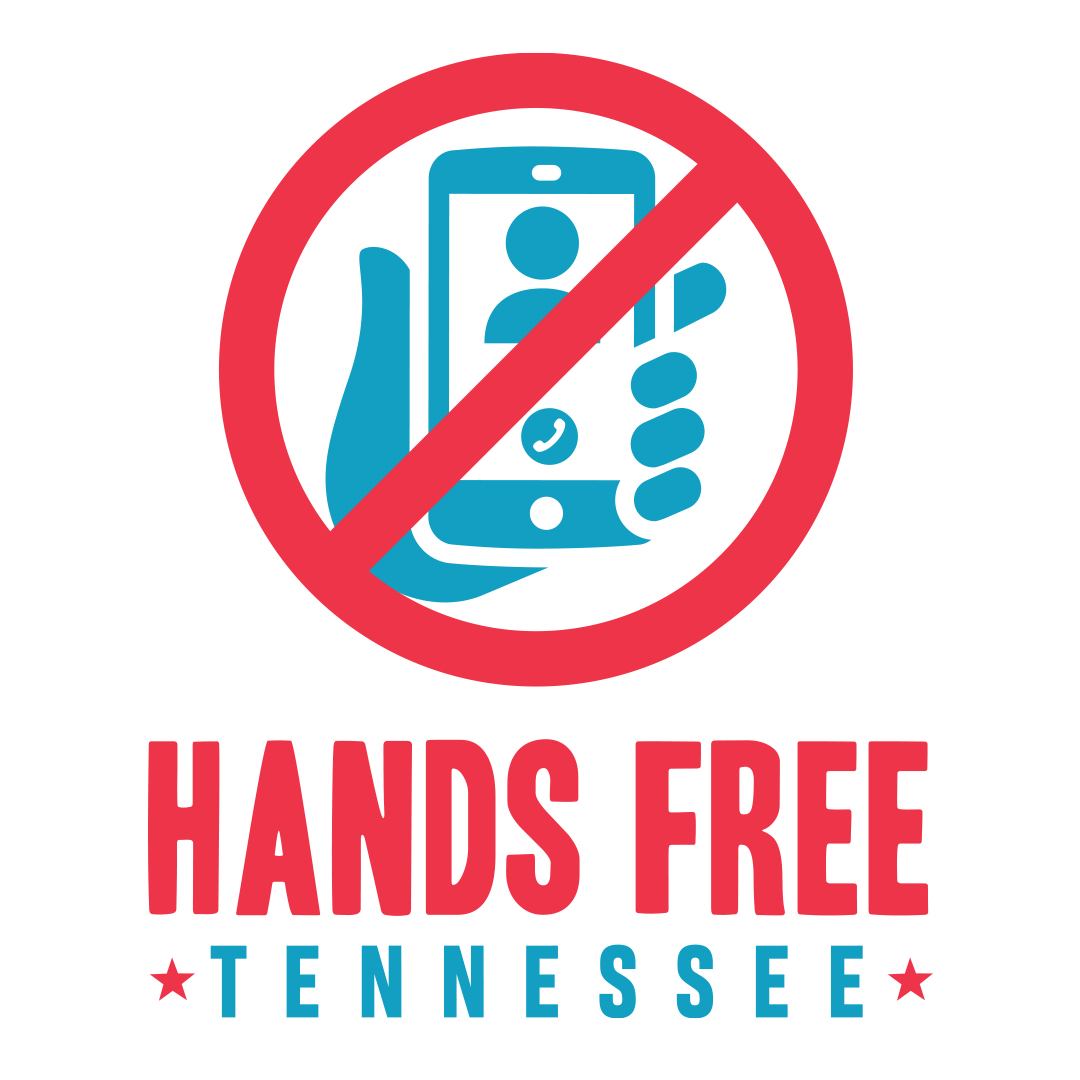
Saving Lives by Reducing Distracted Driving
The Tennessee Department of Safety and Homeland Security partnered with the Tennessee Department of Transportation and the Tennessee Department of Tourist Development to introduce “Hands Free Tennessee.” The purpose of this campaign is to educate Tennesseans about the state’s “Hands Free Law,” known as Public Chapter No. 412, which took effect on July 1, 2019. This law requires drivers to put down their phones and focus on the road.
Let’s eliminate distracted driving-related fatalities and injuries for good.
Let’s eliminate distracted driving-related fatalities and injuries for good.
WHAT IS the Tennessee Hands Free Law?
Tennessee Code Annotated § 55-8-199

Frequently asked QUESTIONS
The law took effect on July 1, 2019.
Violation of this law is a Class C misdemeanor. A traffic citation based on this violation is considered a moving traffic violation. Fines for violations of the law include:
- $50 = First-time offense
- $100 = Third-time offense or higher; violation results in a car crash
- $200 = Violation occurs in a work zone while workers are present; violation occurs in a marked school zone while flashers are in operation
This section does not apply to the following persons:
(1) Officers of this state or of any county, city, or town charged with the enforcement of the laws of this state, or federal law enforcement officers when in the actual discharge of their official duties;
(2) Campus police officers and public safety officers, as defined by § 49-7-118, when in the actual discharge of their official duties;
(3) Emergency medical technicians, emergency medical technician paramedics, and firefighters, both volunteer and career, when in the actual discharge of their official duties;
(4) Emergency management agency officers of this state or of any county, city, or town, when in the actual discharge of their official duties;
(5) Persons using a wireless telecommunications device to communicate with law enforcement agencies, medical providers, fire departments, or other emergency service agencies while driving a motor vehicle, if the use is necessitated by a bona fide emergency, including a natural or human occurrence that threatens human health, life, or property;
(6) Employees or contractors of utility services providers acting within the scope of their employment; and
(7) Persons who are lawfully stopped or parked in their motor vehicles or who lawfully leave standing their motor vehicles.
It is illegal for a driver to operate a motor vehicle while holding or supporting a cellphone or mobile device with any part of his/her body.
A driver is permitted to use an earpiece, headphone device, or device worn on a wrist to conduct voice-based communication. The driver may use one (1) button on a cell phone or mobile device to initiate or terminate voice communication. Voice-based communication may also be used to send a text message.
It is illegal for a driver to record or broadcast video on a cellphone or mobile device. However, this does not apply to mobile devices used for the sole purpose of continuously recording or broadcasting video within or outside of the motor vehicle.
A driver is permitted to listen to streaming music that does not include videos on the screen of the cellphone or mobile device. However, the driver cannot touch the cellphone to activate or program music while driving.
A driver is permitted to use a cellphone or other wireless telecommunications device to communicate with law enforcement agencies, medical providers, fire departments, or other emergency service agencies while driving a motor vehicle, if the use is necessitated by a bona fide emergency, including a natural or human occurrence that threatens human health, life, or property.
Yes, you would get 3 points on your driving record for each violation.
It takes 12 points to get your license suspended.







